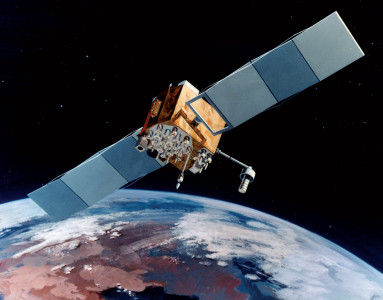GPS is probably one of the most useful technologies to date. Most users—even if they aren’t GPS enthusiasts with dedicated automotive or handheld devices—use it on a daily basis. From getting accurate weather predictions based on your GPS location to finding your way around the city or even locating a new restaurant, GPS is pretty much everywhere. But, a surprisingly small number of people actually know anything about GPS.
Now, this is something that we have written about before here on GPS Tracklog, but as GPS is becoming more and more mainstream as time goes on, it’s something that is worth going over once again. If you’re here to try and find out how GPS works, then check out this post for a more in-depth discussion. Below, you’ll find some of the questions that I get asked the most.
What is GPS?
Before we can go into who owns GPS, we should probably take a moment and identify what we’re talking about. GPS stands for Global Positioning System, and it is a series of satellites which help users determine their location on the globe based on maps and signals from both satellites and ground receivers.
Who Owns and Operates GPS?
Despite the fact that GPS is used worldwide, it actually was created, owned, and currently operated by the Unites States government. The constellation consists of around 32 operational satellites orbiting the earth, and it has gone through multiple upgrades since its first fully-functioning status in 1993. There is team of dedicated air force men located at Schriever Air Force Base in Colorado which monitor the GPS signals 24/7.
Is GPS the only navigational system?
Absolutely not. Although the US was the first to get its satellites up and running, we are not the only ones with a satellite constellation. In fact, Russia’s GLONASS is also operational and occasionally used side-by-side with GPS for greater accuracy. China has been working on its own system, called Beidou, as has Europe. Europe’s constellation is commercial, not governmental, and it is called Galileo.
Are people tracking me via GPS?
This is, hands down, the No. 1 question that I get asked, and while the simple answer is probably not, there’s a bit more to it than that. In order for anyone to be able to track you via GPS, the device has to transmit signals, which then must be interpreted. Most dedicated GPS devices that you see in a car or use while hiking do not actually have this technology. Those devices are receivers and can only gather and interpret signals sent by satellites and such. Therefore, it is impossible for anyone to use those to track you as there’s nothing to track. There are certain GPS devices which are designed to be tracked, and they can transmit signals. Usually, they are referred to as GPS Trackers, so it’s pretty easy to tell the difference.
Now, a smartphone is a different matter altogether. These devices often can transmit signals and indeed must do so for functionality purposes. After all, it would be hard to give you weather info without knowing where you are. So, technically speaking, you could be tracked via your smartphone but that doesn’t mean that you are being tracked. Always check your device’s settings and the permissions on apps to see if the apps require tracking your location for functionality. If you’re really worried about it, you can turn off the GPS in your device settings.

